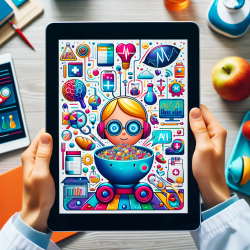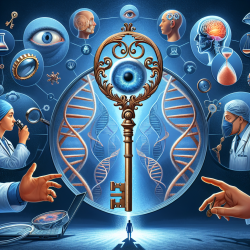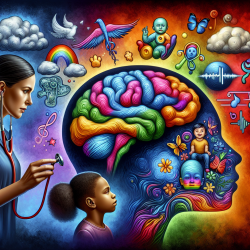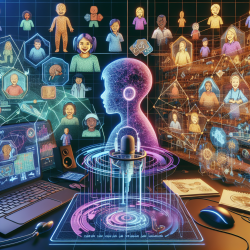Introduction
The integration of digital technologies and artificial intelligence (AI) in healthcare has been transformative, offering new avenues for improving patient outcomes across various domains, including nutrition assessment. The research article, "The Application of Digital Technologies and Artificial Intelligence in Healthcare: An Overview on Nutrition Assessment," provides valuable insights into how these technologies can be leveraged to enhance healthcare delivery, particularly in the realm of nutrition and clinical biochemistry.
Implications for Speech Language Pathologists
As a speech language pathologist, understanding the nutritional status of your pediatric clients is crucial. Nutrition plays a significant role in cognitive and communicative development, and leveraging AI can provide a more comprehensive understanding of a child's nutritional needs. Here are some key takeaways from the research that can be applied in practice:
- Data-Driven Nutrition Assessments: Utilize AI-powered applications to collect and analyze data on dietary intake, macronutrient and micronutrient tracking, and biometric values. This data can inform personalized nutrition plans that support speech and language development.
- Wearable Technology Integration: Encourage the use of wearable devices that monitor health metrics such as blood glucose levels, body weight, and activity levels. These devices can provide real-time feedback and help in tailoring interventions that support overall health and communication outcomes.
- AI for Predictive Analysis: Implement AI tools that predict potential nutrition-related issues, allowing for early intervention and prevention of conditions that may impact speech and language development.
Encouraging Further Research
While the current research provides a solid foundation, it is imperative to continue exploring the intersection of AI, digital technologies, and nutrition in speech language pathology. Practitioners are encouraged to engage in further research to uncover new applications and refine existing methodologies. Collaborative efforts with nutritionists, AI specialists, and healthcare providers can lead to innovative solutions that enhance child outcomes.
Conclusion
The integration of digital technologies and AI in nutrition assessment offers promising opportunities for speech language pathologists. By adopting these tools, practitioners can make informed, data-driven decisions that enhance the nutritional support provided to children, ultimately improving their speech and language development.
To read the original research paper, please follow this link: The Application of Digital Technologies and Artificial Intelligence in Healthcare: An Overview on Nutrition Assessment.










